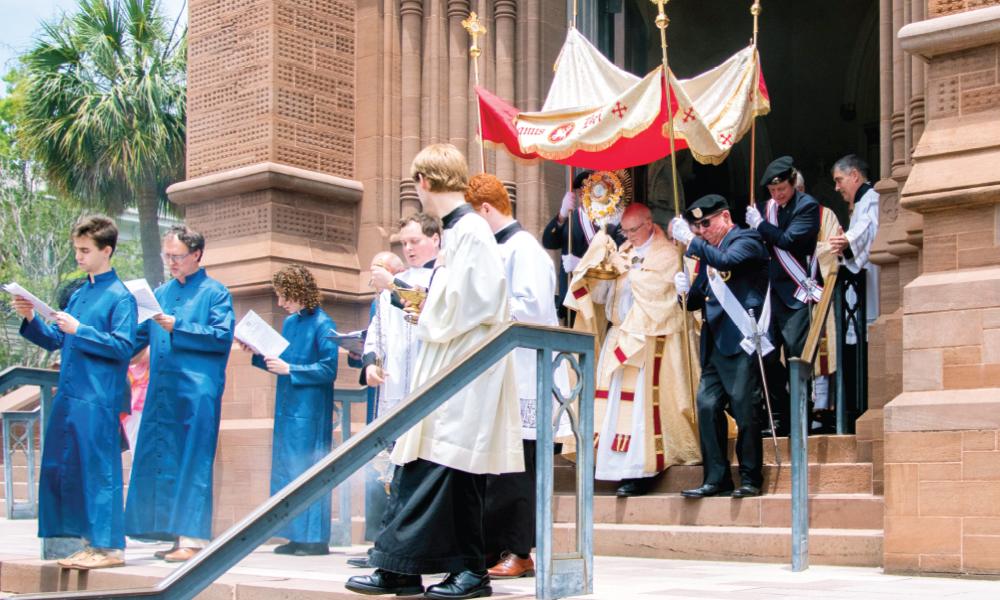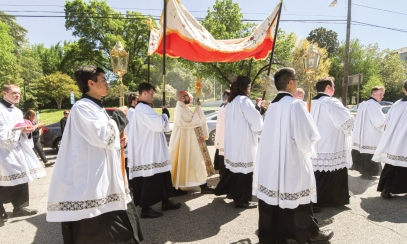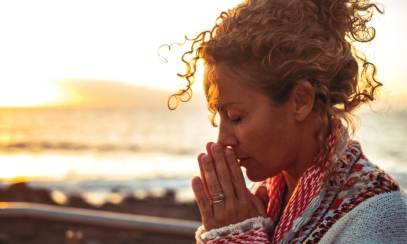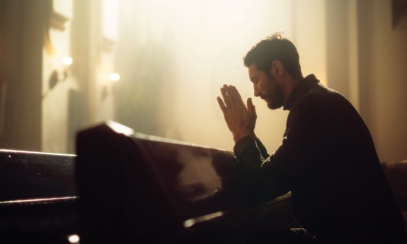
The Beauty of the Eucharist
As we have mentioned on several occasions, during this process of Eucharistic Revival in the United States, we are each being asked not only to reinvigorate our personal eucharistic faith, but also to share that faith with others. One of the difficult challenges in this task is moving our society from apathy to faith. Apathy is different from unbelief — it is not primarily an intellectual issue. Put another way, conversion is about a movement of heart rather than a movement of the mind (not to say the two are disconnected). So, how do we approach this task of evangelization?
As we have mentioned on several occasions, during this process of Eucharistic Revival in the United States, we are each being asked not only to reinvigorate our personal eucharistic faith, but also to share that faith with others. One of the difficult challenges in this task is moving our society from apathy to faith. Apathy is different from unbelief — it is not primarily an intellectual issue. Put another way, conversion is about a movement of heart rather than a movement of the mind (not to say the two are disconnected). So, how do we approach this task of evangelization?
Since the issue is not only an intellectual one but also an affective one, our responses should be intellectual and affective. In ministry circles we often talk about the need for an “encounter with Christ.” There are many things we mean by this; after all, there are many ways our Lord makes himself present to us. But when we talk about nourishing eucharistic faith, we need to consider sharing that faith through good intellectual explanations and a profound sense of the sacred. We find this sense in the beauty of the Mass and in the beauty of various eucharistic devotions outside of Mass. In this beauty, we get a taste of the transcendent, the “always more” of God.
In what is arguably the defining document of his pontificate so far, the apostolic exhortation Evangelii Gaudium (the Joy of the Gospel), Pope Francis spends some time discussing the via pulchritudinis, or the way of beauty. It touches the heart and opens it to receive God’s truth and goodness (EG 167). Our eucharistic zeal, then, begins with us allowing the beauty of the Eucharist to move our hearts — but the beautiful is not a consideration of taste nor attention to what’s fashionable and trendy. Rather, true beauty is universal and timeless.
Anyone who has visited an art museum has a sense of this. There is a reason that masterpieces have been preserved over time. They capture something, often that “something” is difficult to articulate in words. The reason we are a sacramental people is that we realize that the Word, God’s Word, who is God, was made flesh precisely because that Word has more to say than any of our words can ever express.
Christianity is not a set of good ideas. There is “always more” than words and ideas; there’s always a “beyond.” Christ, and by extension Christianity, is the concrete expression of the transcendent God who is always beyond anything else we know and can describe, yet who is always most intimately near to us. The beauty of the Eucharist is found in the aesthetics of the liturgy, in the silence of adoration, in the simplicity yet profundity of the gift, in the depth of the sacrifice, in the invitation of the meal and in the yearning of those who receive.
It is for this reason that we are moved by the witness of others: love for Christ is beautiful. The beauty of the witness of others gets us beyond concepts and into relationship. Conversion is not simply the determination that the Church has the right ideas, but rather the experience of having our hearts captured by the mysterious love of our lives, God himself. When we hear of this mysterious one capturing the hearts of others, our own hearts are opened also. That’s why our duty as Christians is to share our faith and to share eucharistic faith specifically. We need to share the idea of the faith and the Real Presence, but also, the experience of the intimate relationship that we have when we encounter Christ in the Eucharist. That can open the hearts of others. It is the invitation to experience that beauty for oneself — maybe beginning in simple, incremental ways, like a short time in adoration — that is really an invitation into divine intimacy. The beauty of this intimacy is life-changing and transformative.
As an appendix to our reflection, I would like to highlight some concrete opportunities to practice this witness. In a few short months, the Diocese of Charleston will gather together to share the witness of our love for Christ in the Eucharist at our first Diocesan Eucharistic Congress April 6, 2024, at the Columbia Metropolitan Convention Center.
We are also sponsoring a “witness” video contest where people can briefly share (30 seconds or less) how the Eucharist has been a gift in their lives. It will be shared on diocesan social media, our website and in other ways. Check out charleston diocese.org/eucharistic-revival for more information on both of these opportunities.
Assembling to worship Christ in the Eucharist and deepen our own knowledge and faith is a form of witness to our eucharistic faith that we can practice together as a Church. The beauty of the Church assembled around the Eucharist can move hearts, beginning with our own. The authentic intimacy of individual witness brings with it the same beauty.
Michael Martocchio, Ph.D., is the secretary of evangelization and the director of the Office of Catechesis and Christian Initiation. Email him at mmartocchio@charlestondiocese.org.



